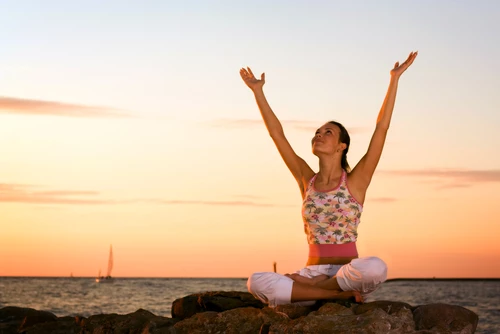New Study: Yoga May Offer Greater Relief from Depression than Walking

Numerous studies indicate that exercise may be up to 95% as effective as prescription drugs for relieving depression. And while the effect of anti-depressants often takes months to kick in, people report relief from depression within only the first four weeks of adopting a physical activity program. However, a recent study reveals that yoga for depression may be even more effective at offering relief for depression than other forms of exercise.
Conducted by researchers Chris C. Streeter, MD and associates at Boston University School of Medicine, the study analyzed the mood, anxiety, and brain GABA levels (which directly correlate to emotional health) of 34 participants over the course of 12 weeks.
The participants were divided into two groups: a yoga for depression group and a metabolically matched walking group. Each group practiced their prescribed form of exercise for 60 minutes, three times a week. Researchers measured mood and anxiety scales for all participants at the start of the study and at weeks 4, 8, and 12. Participants also received magnetic resonance spectroscopy scans to measure their GABA (γ-Aminobutyric acid) levels.
At the end of the 12 weeks, researchers found that not only had the yoga practitioners’ GABA levels gone up, but that those in the yoga for depression had also experienced greater improvements in both anxiety and depression than those in the metabolically-matched walking group.
Scientists have long known of the connection between GABA levels and mood; drugs that can increase GABA activity are often prescribed for patients with depression or anxiety disorders. Researchers have also been aware of the relationship between yoga practice and the natural increase of brain GABA levels. However, this is the first study to reveal that yoga in particular can offer a greater help for depression and anxiety than simple exercise can.



